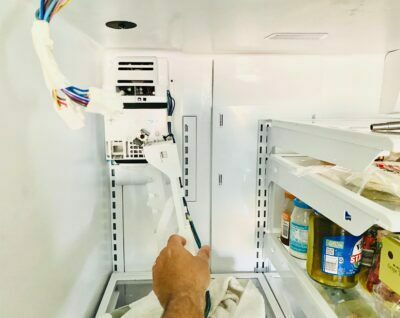Finding the perfect educational foundation for your child can feel overwhelming, especially when considering the growing number of educational options available in San Antonio. The Montessori method has gained tremendous popularity among parents seeking an alternative to traditional educational approaches, and for good reason. This child-centered philosophy emphasizes independence, hands-on learning, and respect for a child’s natural development. For families seeking a reliable, caring Montessori education in San Antonio, schools like Country Day Montessori have been providing authentic Montessori experiences for decades. However, not all schools claiming to be “Montessori” truly follow Dr. Maria Montessori’s original methodology. Understanding how to identify genuine Montessori programs will help parents make informed decisions that best serve their children’s educational journey.
Understanding Authentic Montessori Education
The foundation of any quality Montessori school lies in its adherence to Dr. Maria Montessori’s original principles. Authentic Montessori education centers around the belief that children are naturally curious and capable of initiating their own learning when provided with the right environment and guidance. This approach differs significantly from traditional education models where teachers direct most classroom activities.
True Montessori schools create what Dr. Montessori called “prepared environments” – carefully designed spaces that encourage exploration and discovery. These environments feature child-sized furniture, accessible materials, and natural elements that invite independent learning. Students move freely throughout the classroom, choosing activities that capture their interest and working at their own pace.
One of the most distinctive features of authentic Montessori education is the uninterrupted work cycle, typically lasting three hours. During this time, children engage deeply with their chosen activities without the constant interruption of bells or scheduled transitions. This extended focus period allows for concentration development and meaningful learning experiences.
Parents should be cautious of schools that claim to be “Montessori-inspired” but lack these fundamental elements. Genuine Montessori schools maintain strict adherence to the methodology, while inspired programs may cherry-pick certain aspects without implementing the complete philosophy.
Evaluating Teacher Credentials and Training
The quality of Montessori education depends heavily on teacher preparation and ongoing professional development. Authentic Montessori teachers receive specialized training through recognized organizations such as the Association Montessori Internationale (AMI) or the American Montessori Society (AMS). These programs require extensive coursework, supervised practice teaching, and comprehensive examinations.
Montessori teacher training is age-specific, meaning educators specialize in particular developmental stages. Infant and toddler teachers focus on the earliest years of development, primary teachers work with children ages three to six, and elementary teachers serve students from six to twelve. This specialization ensures teachers understand the unique needs and characteristics of their specific age group.
When evaluating potential schools, parents should inquire about teacher credentials, years of experience, and professional development opportunities. High-quality Montessori schools invest in their staff through ongoing training and maintain low teacher turnover rates. The teacher-to-student ratio should align with Montessori recommendations, typically ranging from 1:8 to 1:12 depending on the age group.
Experienced Montessori teachers act as careful observers and guides rather than traditional instructors. They understand when to intervene and when to step back, allowing children to discover and learn through their own experiences. This skilled approach requires extensive training and cannot be replicated without proper Montessori preparation.
Assessing the Classroom Environment
The physical environment plays a central role in Montessori education, serving as what Dr. Montessori called the “third teacher.” When visiting potential schools, parents should observe whether classrooms truly reflect Montessori principles. The space should feel calm, organized, and inviting, with natural materials and soft lighting whenever possible.
Montessori materials are specifically designed to be self-correcting and promote independent learning. These materials should be complete, well-maintained, and accessible to children. Each material serves a specific purpose in developing particular skills or concepts, and authentic Montessori schools invest in genuine materials rather than substitutes.
The classroom layout should allow for free movement and choice. Children should be able to access materials independently, find quiet spaces for individual work, and gather in groups for collaborative activities. The environment should feel peaceful and purposeful, with minimal distractions from overstimulating decorations or noise.
During classroom observations, parents should notice how children interact with the environment. Are they engaged and focused? Do they move with purpose and care for their materials? Are they working independently or constantly seeking adult direction? These observations provide valuable insights into how well the environment supports Montessori principles.
Age-Mixed Groupings and Program Structure
One of the most distinctive features of Montessori education is the mixed-age classroom structure. Traditional schools typically group children by chronological age, while Montessori classrooms span three-year age ranges. This approach creates natural mentoring relationships where older children support younger ones, developing leadership skills and empathy in the process.
Younger children benefit from observing and learning from their older peers, while older students reinforce their own learning by teaching concepts to younger classmates. This dynamic eliminates much of the competition found in same-age groupings and allows children to progress at their own pace without comparison to peers.
Quality Montessori programs maintain continuity across age levels, allowing children to build upon previous learning experiences. Schools should offer a complete range of programs, from infant and toddler care through elementary education. This continuity ensures that children can remain within the Montessori environment throughout their foundational years.
Parents should inquire about how schools handle transitions between age groups and whether they maintain Montessori principles throughout all levels. Some schools may offer authentic Montessori programs for younger children but switch to traditional methods for older students, which can disrupt the continuity of the educational experience.
Practical Considerations for San Antonio Families
Beyond educational philosophy, families must consider practical factors when choosing a Montessori school. Location plays a significant role in daily logistics, and parents should evaluate commute times, traffic patterns, and accessibility. Schools located in safe neighborhoods with adequate parking and easy access will make daily drop-offs and pick-ups more manageable.
Schedule flexibility can be particularly important for working families. Many Montessori schools offer extended care hours, summer programs, and various scheduling options to accommodate different family needs. Parents should inquire about these services and any additional costs associated with extended care.
Financial considerations include not only tuition costs but also additional fees for materials, field trips, meals, and special programs. Transparent fee structures and available payment plans or financial assistance programs can help families budget appropriately. While Montessori education requires investment, families should compare costs with the value provided and consider long-term educational benefits.
Some schools offer trial periods or gradual entry programs, which can help both children and families adjust to the Montessori environment. These options demonstrate the school’s commitment to supporting successful enrollment and positive experiences.
Questions to Ask During Your School Visit
Preparing thoughtful questions before visiting potential schools will help parents gather necessary information and make informed decisions. Parents should ask about the school’s specific interpretation of Montessori philosophy and how it guides daily practices. Understanding the school’s approach to discipline, conflict resolution, and parent communication will provide insights into overall school culture.
Accreditation and licensing status indicate the school’s commitment to maintaining educational standards and regulatory compliance. Parents should also inquire about parent involvement opportunities, volunteer expectations, and communication policies regarding student progress and school events.
Observing student behavior during visits provides valuable information about school culture and effectiveness. Are children engaged and happy? Do they interact respectfully with peers and teachers? Does the atmosphere feel warm and supportive? These observations often reveal more about school quality than formal presentations or materials.
Making Your Final Decision
After gathering information and visiting potential schools, parents should create a systematic comparison of their options. Consider how each school aligns with family values, educational goals, and practical needs. The decision should balance multiple factors rather than focusing solely on one aspect such as cost or location.
Trust parental instincts about school culture and whether it feels like the right fit for the child and family. Children thrive in environments where they feel safe, supported, and challenged appropriately. The right school will demonstrate genuine care for each child’s individual development and maintain open communication with families.
The enrollment process varies among schools, and parents should understand timelines, requirements, and waiting list procedures. Some schools may have specific entry points throughout the year, while others maintain more flexible admission policies.
Choosing the right Montessori school represents an investment in a child’s educational foundation that can influence their entire academic journey. San Antonio families have access to several quality Montessori options, each with unique strengths and characteristics. By understanding authentic Montessori principles, evaluating teacher qualifications, assessing learning environments, and considering practical factors, parents can make informed decisions that support their children’s growth and development. The right Montessori school will feel like a natural extension of family values and provide the nurturing environment where children can flourish as independent, confident learners.









